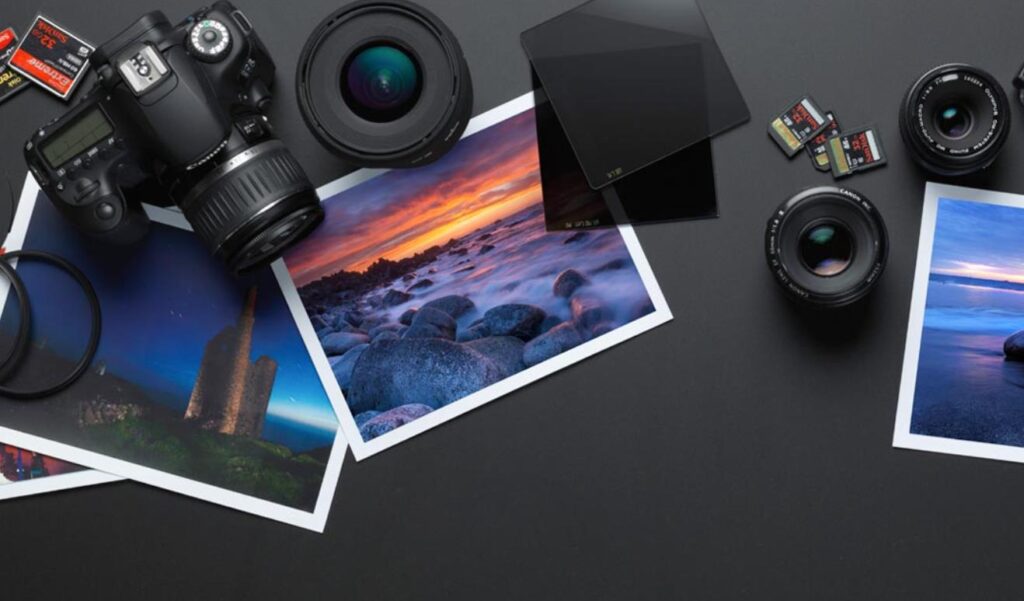Starting a photography business can be an exciting venture, especially when you’re passionate about capturing the world through a lens. But How To Start A Photography Business With No Experience? The good news is that you don’t necessarily need formal experience to get started. All you need is a genuine interest in photography, a willingness to learn, and the determination to turn your passion into a profitable business.
Key Takeaways
- Determining Charges: Research market rates and consider your costs to set your pricing as a beginner photographer.
- Multiple Revenue Streams: Freelance work, stock photography, and workshops can be lucrative ways to make money when starting out.
- Home-Based Business: Operating a photography business from home is feasible but requires attention to legal considerations and space requirements.
How To Start A Photography Business With No Experience?
The straightforward answer to this question is to just start. However, there are several steps you can take to make your journey smoother and more successful.

Equipment: Start Small, Think Big
Your first investment should be in a decent camera. It doesn’t have to be a high-end model; even a smartphone with a good camera can work wonders initially.
Develop Your Skills
Before you can offer your services, you need to be good at what you do. This involves understanding the basics of composition, lighting, and subject. Online courses and workshops can be very helpful.
Build a Portfolio
Your portfolio is your business card in the photography world. It should showcase your best work and the range of your skills. Consider creating a digital portfolio to reach a wider audience.
Legal Requirements
Before you start taking on clients, make sure your business is legally set up. This involves registering your business name, obtaining necessary permits, and setting up tax IDs.
Pricing Your Work
Understanding how to price your work is crucial. Too low and you undervalue your work; too high and you scare away potential clients. Research the market to find a balanced pricing strategy.
Client Contracts
Always have a contract in place when taking on new projects. This not only protects you but also sets clear expectations for your clients.
Insurance
Last but not least, get insurance for your equipment and for liability. This is a crucial step that many new photographers often overlook.
Marketing Your Photography Business

Social Media Presence
Having a strong social media presence can significantly boost your business. Platforms like Instagram are particularly beneficial for photographers. Regularly post your work and engage with your audience to build a following.
Networking
Never underestimate the power of networking. Attend industry events, collaborate with other photographers, and don’t hesitate to ask for referrals from satisfied clients.
SEO for Photographers
Search Engine Optimization (SEO) can help your website rank higher in search results, making it easier for potential clients to find you. Learn the basics of SEO and consider hiring an expert if needed.
Time Management
Scheduling
Use scheduling tools or software to manage your time effectively. This will help you juggle multiple projects without missing deadlines.
Work-Life Balance
Running a business can be demanding. Make sure to allocate time for yourself and your loved ones to maintain a healthy work-life balance.
Financial Planning
Budgeting
Create a budget to track your income and expenses. This will help you understand the financial health of your business and make informed decisions.
Taxes and Accounting
Hire an accountant or use accounting software to manage your finances. This will help you during tax season and ensure you’re compliant with legal requirements.
Client Retention
Customer Service
Excellent customer service can turn one-time clients into repeat customers. Always be professional, punctual, and polite.
Follow-Up
After completing a project, follow up with your clients. Ask for feedback and if they would be willing to write a testimonial for your website.
The Pros Of Starting A Photography Business
Starting a photography business comes with several advantages:

Creative Freedom
One of the most significant benefits is the creative freedom it offers. You get to choose the projects that interest you and express your artistic vision.
Flexible Schedule
Being your own boss means you can set your own hours. This flexibility can be especially beneficial if you have other commitments.
Potential for High Earnings
Photography can be a lucrative field, especially as you build your portfolio and client base. Specialized photography services often command higher fees.
Low Startup Costs
You don’t necessarily need a studio or expensive equipment to start. Many photographers begin by working from home and gradually invest in more advanced gear.
Job Satisfaction
There’s a high level of job satisfaction in delivering a product that captures significant moments in people’s lives.
The Cons Of Starting A Photography Business
Despite the advantages, there are also challenges:

Unpredictable Income
Income can be inconsistent, especially when you’re starting. It’s crucial to have a financial cushion for lean periods.
High Competition
The field is highly competitive, with many photographers vying for a limited number of opportunities.
Time-Consuming
Photography isn’t just about taking pictures; there’s also editing, marketing, client meetings, and other administrative tasks.
Skill Development
Continuous learning and skill development are necessary to stay ahead in the field, which can be time-consuming and sometimes costly.
Business Risks
Like any business, there are risks involved, including financial loss and business failure.
Types Of Photography Businesses
There are various types of photography businesses you can venture into:

Portrait Photography
This involves taking pictures of individuals or groups, often in a studio setting.
Wedding Photography
Capturing moments in weddings and other ceremonies. This can be a lucrative but demanding field.
Commercial Photography
This includes product photography, real estate photography, and other types of photography that businesses use for promotional purposes.
Nature and Wildlife Photography
This involves capturing images of nature, landscapes, and wildlife. It often requires travel and specialized equipment.
Event Photography
This covers a broad range of events, from corporate functions to parties and concerts.
Specialized Photography
This includes niche areas like underwater photography, aerial photography, and photojournalism.
Important Legal Steps For Establishing Your New Business
Starting a photography business involves several legal steps to ensure you’re operating within the law:

Business Structure
Decide on the type of business structure that suits your needs, such as a sole proprietorship, partnership, or LLC. Each has its own tax implications and filing requirements.
Business Name and Registration
Choose a business name and check its availability. Once confirmed, register the name and obtain a federal Employer Identification Number (EIN) for tax purposes.
Licenses and Permits
Depending on your jurisdiction, you may need various licenses and permits to operate. These could include a general business license, a home occupation permit if you’re operating your business from home, and specialized permits for certain types of photography.
Contracts and Agreements
Draft standard contracts for your services to outline the terms and conditions, payment, deliverables, and other important aspects of client engagement.
Insurance
Obtain necessary insurance policies, including liability insurance and equipment insurance, to protect yourself from legal issues.
Tips On Running And Growing Your Photography Business
Running a successful photography business involves more than just taking great photos:
Quality Over Quantity
Focus on delivering high-quality work to build a strong portfolio and attract more clients.
Networking
Use social media and attend industry events to network with potential clients and other photographers.
Customer Service
Excellent customer service can turn one-time clients into repeat customers. Always be professional, punctual, and polite.
Diversify Revenue Streams
Consider offering additional services like photo editing, workshops, or selling prints to diversify your income.
Keep Learning
The photography industry is always evolving. Stay updated with the latest trends and technologies to keep your business competitive.
How To Start A Photography Business With No Money?
Starting a photography business with no money is challenging but possible:

Use What You Have
Start with the equipment you already own. Even a smartphone with a good camera can be sufficient for certain types of photography.
Free Marketing
Utilize free marketing channels like social media and word of mouth to get your first clients.
Barter Services
Offer your photography services in exchange for something you need, like website design or marketing.
Freelance Gigs
Take on freelance photography gigs to earn money for better equipment and other business expenses.
Crowdfunding
Consider crowdfunding platforms to raise the initial capital needed to start your business.
How Much Should I Charge As A Beginner Photographer?
Determining how much to charge as a beginner photographer can be a challenging task. Here are some factors to consider:

Market Research
Research what other photographers in your area and niche are charging. This will give you a ballpark figure to start with.
Cost of Doing Business
Calculate your expenses, including equipment, software, travel, and time. Make sure your pricing covers these costs and leaves room for profit.
Skill Level
Even as a beginner, the quality of your work will dictate how much you can charge. If your work is of high quality, you can charge a bit more.
Package Deals
Consider offering package deals for events like weddings or corporate functions. This can make your services more attractive to potential clients.
Hourly vs Project-Based
Decide whether you’ll charge by the hour or by the project. Each has its pros and cons, so choose the one that aligns with your business model.
Source: Based on general industry knowledge.
How Do Beginning Photographers Make Money?
Starting out in photography doesn’t mean you can’t make money. Here are some ways to generate income:

Freelance Work
Take on freelance projects that align with your skills and interests. Websites like Upwork and Freelancer can be good platforms to start.
Stock Photography
Sell your photos on stock photography websites like Shutterstock or Getty Images.
Print Sales
Sell prints of your work online or at local art fairs.
Workshops and Tutorials
If you have a particular skill or technique that others might want to learn, consider offering workshops or online tutorials.
Social Media and Blogging
Use platforms like Instagram and YouTube to showcase your work and attract a following, which can be monetized through sponsorships and affiliate marketing.
Can I Run A Photography Business From Home?
Yes, running a photography business from home is entirely possible and has several advantages:
Lower Costs
Operating from home eliminates the need for a separate studio space, reducing your overhead costs.
Flexibility
Working from home allows you to set your own schedule, making it easier to balance work and personal life.
Online Presence
With a strong online portfolio and marketing strategy, you don’t need a physical location to attract clients.
Legal Considerations
Check local zoning laws to ensure you can operate a business from your home. You may also need a Home Occupation Permit.
Space Requirements
Ensure you have enough space for a home office, as well as for storing equipment and any props or backdrops you may need.
Conclusion
Starting a photography business with no experience is not as daunting as it may seem. With a genuine interest in the craft, the right equipment, and a solid business plan, you can turn your passion into a profitable venture. Just remember, the key to success is continuous learning and adaptation.
People Also Ask
Do I Need a Formal Education in Photography to Start a Business?
No, a formal education in photography is not a requirement to start a business. However, it can be beneficial to take some courses or workshops to improve your skills.
What Type of Photography Business Can I Start?
The type of photography business you can start depends on your interests and skills. This could range from portrait photography to event photography, commercial photography, or even specialized fields like aerial or underwater photography.
How Much Investment is Needed to Start a Photography Business?
The initial investment can vary depending on the type of photography and the equipment you need. However, it’s possible to start with a minimal budget by using affordable equipment and gradually upgrading as your business grows.
Is Insurance Necessary for a Photography Business?
Yes, insurance is highly recommended to protect both your equipment and your business from potential liabilities.
A multifaceted professional, Muhammad Daim seamlessly blends his expertise as an accountant at a local agency with his prowess in digital marketing. With a keen eye for financial details and a modern approach to online strategies, Daim offers invaluable financial advice rooted in years of experience. His unique combination of skills positions him at the intersection of traditional finance and the evolving digital landscape, making him a sought-after expert in both domains. Whether it’s navigating the intricacies of financial statements or crafting impactful digital marketing campaigns, Daim’s holistic approach ensures that his clients receive comprehensive solutions tailored to their needs.








